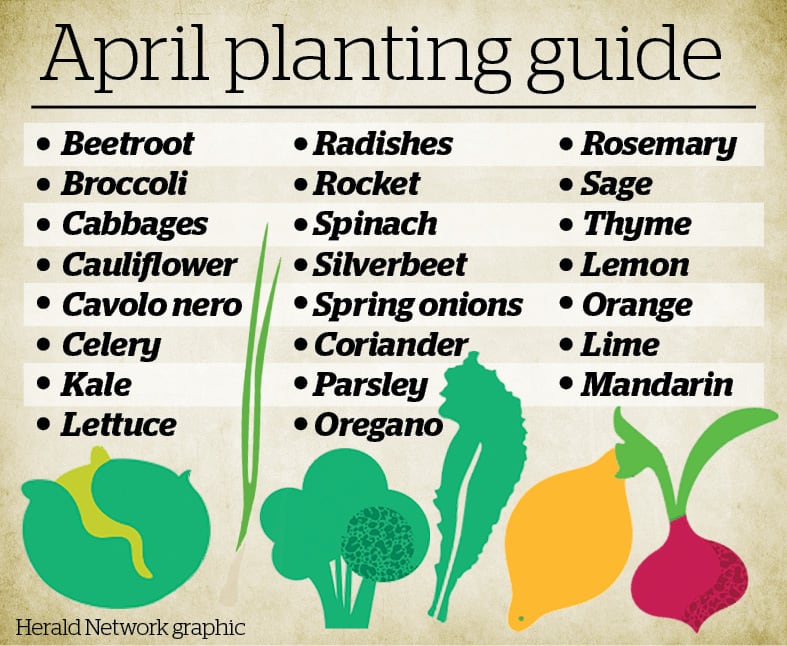Te Rangikaheke Kiripatea doesn’t mince his words when it comes to why people should grow their own fruit and vegetables.
“The biggest mistake is not starting and relying on the supermarkets.”
The price of fruit and vegetables has skyrocketed over the past year, increasing by 12 per cent in the year to February —the most since 1989— with the likes of 1kg of tomatoes costing $10.14 this year compared to $4.68 in February 2022. The March 2023 food price index will be released on Monday.
But some people in the community are taking matters into their own hands by growing their own groceries.
Kiripatea co-founded Kai Rotorua, previously known as the Rotorua Local Food Network, in 2016 with the aim of teaching locals to grow and use food crops.
Kiripatea was trying to help bridge the gap between this generation and those from the past who were great gardeners.
He said his father and other people of that generation had “fantastic” vegetable gardens and orchards in their backyards.
“Look at those places now and they’re just dumping grounds for rubbish. We really have lost our way.
“My dad was a great tradesman and [his generation] were absolutely fantastic gardeners and many had that intimate relationship with the environment.”
Kai Rotorua, a non-profit volunteer organisation, was well-known for the kūmara it grew and would be harvesting this year’s crop at the old Te Puea Orchard on Tuesday.
/cloudfront-ap-southeast-2.images.arcpublishing.com/nzme/MKCVOU6UXVE7BGUMZ435WBCFZU.jpg) Te Rangikaheke Kiripatea, co-founder of Kai Rotorua. Photo / Andrew Warner
Te Rangikaheke Kiripatea, co-founder of Kai Rotorua. Photo / Andrew Warner
It’s made up of more than 130 individuals and organisations after starting with a group of about 30 and has provided over 60 free backyard gardens for whānau and educated schoolkids about gardening.
It also worked alongside the likes of Envirohub Bay of Plenty’s Sustainable Backyards programme to help people get the most out of a backyard garden.
Kiripatea said there were “so many benefits” to māra kai (gardening for food) but the biggest was reconnecting with the environment.
“I think if we start engaging and encouraging people, it’s such an enriching use of our time. This is our kaupapa for Kai Rotorua — reconnecting us with Papatuanuku [the land].
“We’ve lost our way when it comes to growing our food; many of us have become disconnected from our environment.”
And while many people put it in the “too hard basket”, there were people in the community, like himself, willing to help.
It comes as Rotorua Lakes Council Māori ward councillor Lani Kereopa said food insecurity was “rife” across the community.
Kereopa, of Ngāti Whakaue, said a whānau and hapū māra kai (gardening for food) programme Maraeroa Mahinga Kai, located on the shores of Lake Rotorua at the mouth of the Utuhina Stream, was aimed at supporting the Ōhinemutu village community to “come together to grow nutritious fruit and vegetables to supplement our meals.”
“We hold workshops to teach seed saving, and planting and harvesting of seasonal and perennial food gardens to support the restoration of food security amongst our families.
“We are establishing an edible wild garden along the lakefront section of the māra which will act as a food corridor for birds, bees and other insects, while also being a permanent source of seeds and plants for our local families.
“At present, it includes foods such as wild strawberries, wild asparagus, New Zealand spinach and pūhā which, as long as we keep weeds at bay, will hopefully continue to grow wild for the next 20 years.”
It’s not been easy going since the programme started in 2010, with housing now covering the traditional Ngāti Whakaue māra kai and the land that remains “not well suited” to growing food.
In Ōhinemutu, growers deal with geothermal hotspots and Kereopa said its greatest learnings were around what types of fruit and vegetables were able to survive the heat.
/cloudfront-ap-southeast-2.images.arcpublishing.com/nzme/TRI4CXMIXZFW3BAB6TGORDWVIQ.jpg) Lani Kereopa. Photo / Ben Fraser
Lani Kereopa. Photo / Ben Fraser
“We discovered early on that kūmara plants grow very well here but not so much kūmara themselves. We now grow kūmara plants annually for māra across Rotorua.”
Kereopa said outside of addressing food insecurity, the main benefit of māra kai was building connections.
“Connection to our food, connection to each other and our natural environment.
“Working with your hands inside Papatuānuku is as beneficial for our health and wellbeing as diving into Tangaroa [the ocean] to cleanse and refresh, or walking to the top of your maunga [mountains] to let Tawhirimātea [the winds] blow your fear away.”
Bunnings green life buyer Clare Taylor said now was “the perfect time” to plant brassica vegetables like cabbage, cauliflower and broccoli, and leafy greens like lettuce, spinach, kale and silverbeet.
“Start small to help build your confidence and choose a handful of veges that are easy to grow like leafy greens and herbs.
“Once you’ve planted your produce in a sunny spot, water regularly to ensure they establish and add some fertiliser [to] encourage new roots and reduce any transplant shock.”
Taylor said greenhouses, raised garden beds and mulch had been popular as people looked ahead to the winter months.
“With autumn in full swing and the weather starting to cool down, we’re seeing customers prepping their garden for winter and planting fruits such as feijoas, blueberries and citrus.
“Growing your own fruits and veges continues to be popular with customers, offering a great way to save money on grocery bills and also helping avoid buying more than you need.”
Mitre 10 Mega Tauranga garden centre supervisor Lorena Stead advised people throughout the Bay of Plenty to think hard about the garden before getting started.
“It all depends on their section and availability to work a garden.
“If you cut up a quarter acre of land you’re going to spend a lot of time in it. It’s about making sure they’re not over-extending themselves to make their garden profitable.”

Take your Radio, Podcasts and Music with you









